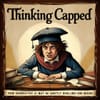Generative AI may be quietly dulling our brains by reducing critical thinking skills and promoting cognitive offloading, where individuals rely on AI tools to reduce mental effort. This can lead to a diminished ability to critically evaluate information, engage in reflective problem-solving, and delay gratification. Younger people, in particular, are affected due to their heavy reliance on technology and still-developing prefrontal cortex, which controls planning, attention, and impulse control.
Frequent AI users exhibit lower brain activity and neural connectivity, potentially weakening core human faculties like critical thinking and reasoning. Overreliance on AI tools can lead to digital addiction, social isolation, and decreased memory retention. Essential skills like creativity, emotional depth, and problem-solving may be compromised as AI takes over tasks.
To mitigate these risks, it's essential to establish conscious boundaries and real-world grounding to prevent overdependence on AI. Unplugging from screens and AI tools, known as digital fasting, can help reset attention and reduce compulsive use. Engaging in activities that promote critical thinking, problem-solving, and creativity can counterbalance AI reliance. Educating and upskilling individuals to collaborate effectively with AI is also crucial.
Finding a balance between leveraging AI's benefits and maintaining critical thinking skills is vital. Prioritizing ethics, transparency, and human values in AI development can help preserve essential human skills. By being aware of the potential risks and taking steps to mitigate them, we can ensure that AI enhances our lives without compromising our cognitive abilities.


